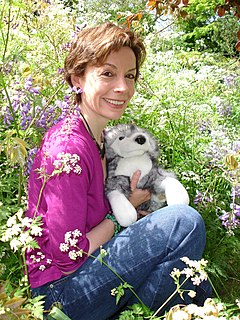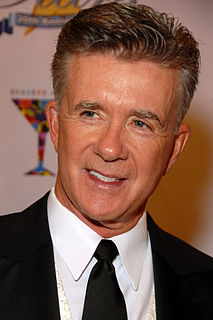A Quote by Richard Leakey
For three million years we were hunter-gatherers, and it was through the evolutionary pressures of that way of life that a brain so adaptable and so creative eventually emerged. Today we stand with the brains of hunter-gatherers in our heads, looking out on a modern world made comfortable for some by the fruits of human inventiveness, and made miserable for others by the scandal of deprivation in the midst of plenty.
Quote Topics
Related Quotes
Twelve thousand years ago, everybody on earth was a hunter-gatherer; now almost all of us are farmers or else are fed by farmers. The spread of farming from those few sites of origin usually did not occur as a result of the hunter-gatherers' elsewhere adopting farming; hunter-gatherers tend to be conservative.... Instead, farming spread mainly through farmers' outbreeding hunters, developing more potent technology, and then killing the hunters or driving them off of all lands suitable for agriculture.
If Adam and Eve were not hunter-gatherers, then they were certainly gatherers. But, then, consumer desire, or self-embitterment, or the 'itch,' as Schopenhauer called it, appeared in the shape of the serpent. This capitalistic monster awakens in Adam and Eve the possibility that things could be better. Instantly, they are cast out of the garden and condemned to a life of toil, drudgery, and pain. Wants supplanted needs, and things have been going downhill ever since.
For the 99 percent of the time we've been on Earth, we were hunter and gatherers, our lives dependent on knowing the fine, small details of our world. Deep inside, we still have a longing to be reconnected with the nature that shaped our imagination, our language, our song and dance, our sense of the divine.
Humans lived for several million years as fully wild beings: only in the last 10, 000 did we invent agriculture; only in the last couple of centuries did we invent industry. We are a species that has spent 99 per cent of its history as hunter-gatherers. We haven't had time for our unconscious minds and our unconscious needs to have changed. If you like, our souls have not changed, and this is true whether or not we believe that we have them.
I worked for [Canadian Country Music Hall of Fame inductee] Tommy Hunter. It was a wonderful training program at the CBC, because they made sure they never paid you very much, so you had to do a lot of things, and that way you made some money. [A phone rings.] That's my agent right now telling me I've got a 13 cent residual from Tommy Hunter in 1969.
There's something very terrifying about that and very primal about it. It's my belief that what horror does for people is that it provides that primal fear that, when we were wild hunter-gatherers, we had as part of our natural lives because maybe something was trying to hunt and gather you as well. We don't have that anymore in life and that's one of the things that horror films and action films provide for us.
It's an attitude of superiority. We are superior to the rest of life. The Book of Genesis says: 'Increase and multiply and have dominion over the birds of the air and the animals and so forth.' You run it; it's yours; do what you like with it. I don't know how old that text is, but it represents an attitude that probably really got going with the beginning of agriculture. Before that, the hunter-gatherers were gentler people than the agriculture.






































